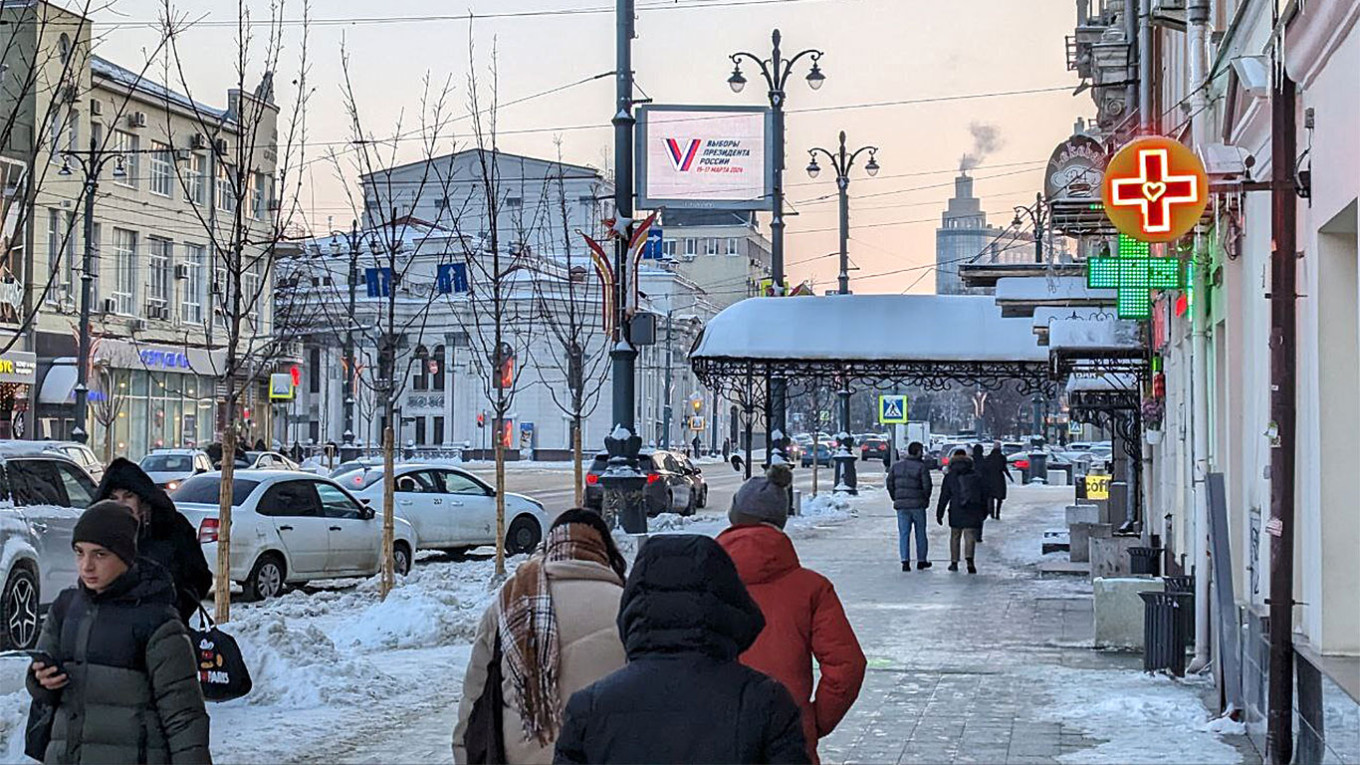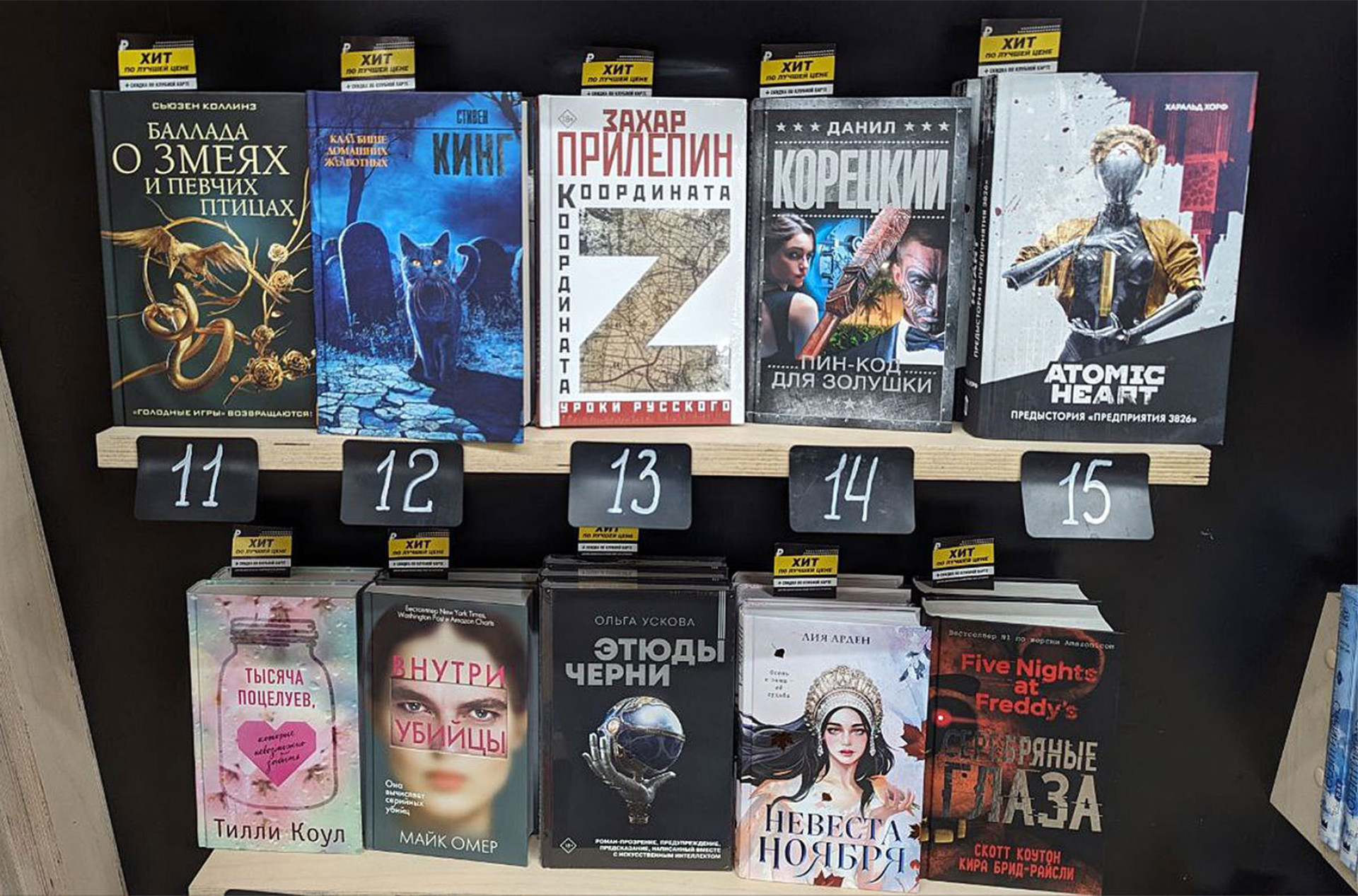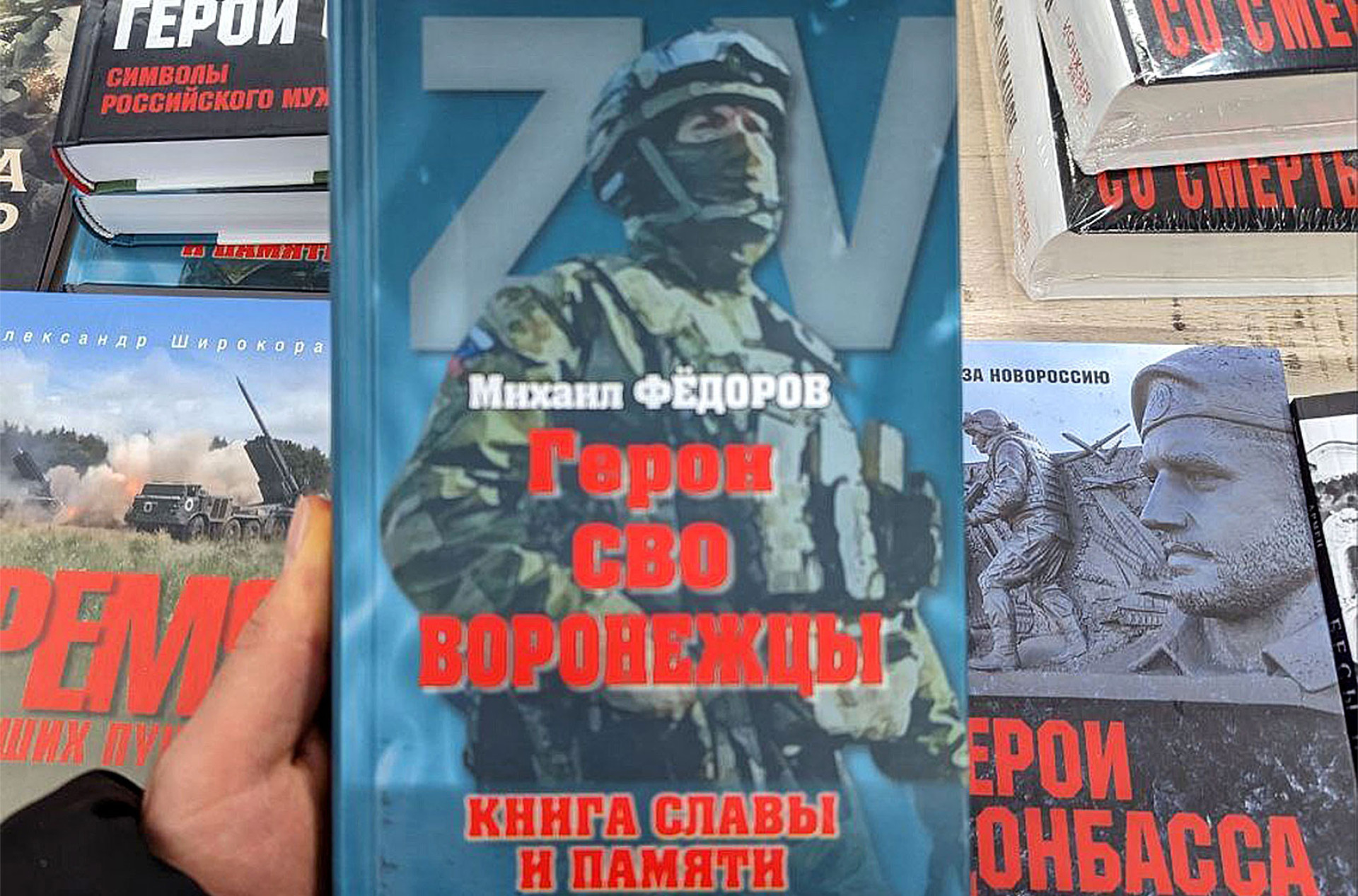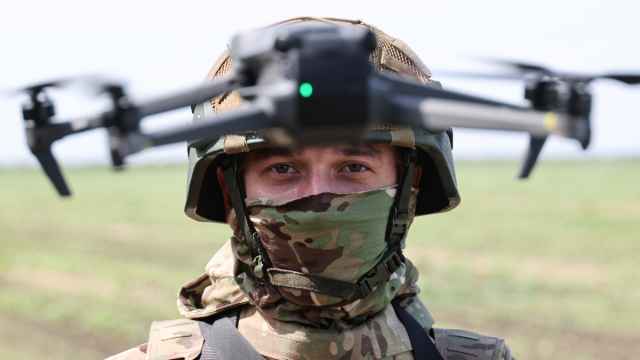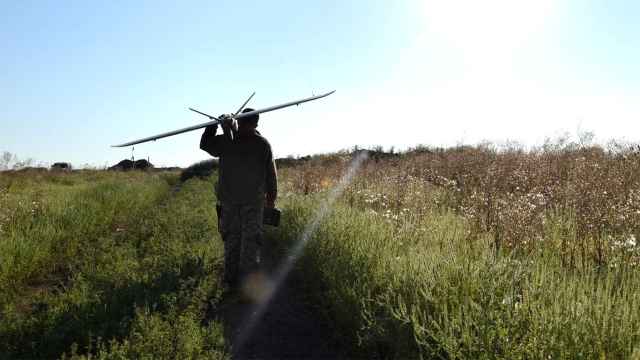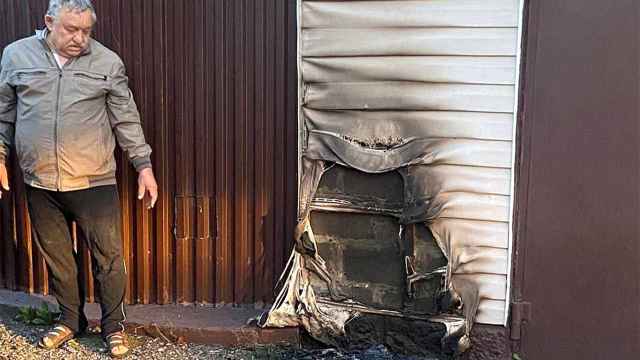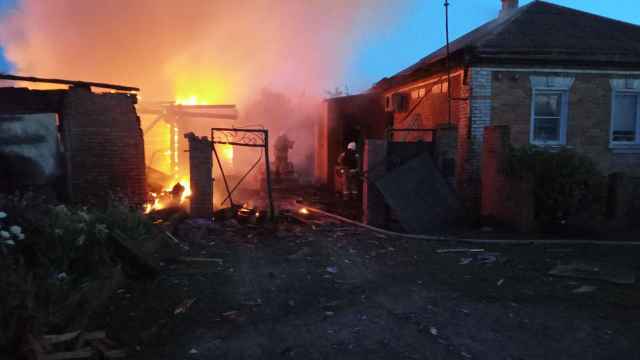VORONEZH, Russia — Valeria, a 28-year-old journalist, was woken up in the middle of the night to the sounds of explosions last Saturday.
On Feb. 17, when the Defense Ministry announced that it destroyed four drones near her block, she had to sleep in her bathroom for fear of shelling.
“I heard about five explosions, although the news said there were only two or three drones. One of them fell near my relatives’ house,” she told The Moscow Times.
It’s not the first time she’s been woken by the sounds of drones.
In Voronezh, a city of about 1 million near the border with Ukraine, Moscow’s war on Kyiv has quietly seeped into everyday life over the past two years even as residents seek to maintain a sense of normalcy.
A month before the Feb. 17 drone crash, Voronezh experienced its largest drone attack since the start of the war. Wreckage from one of the downed drones fell into an apartment, injuring a 10-year-old girl and starting a fire. Dozens of apartments were damaged near the Baltimore Military Airfield.
“From the beginning [of the war], I understood that this could happen, because we are close to the border,” Valeria said. “I packed a backpack with medicines, water, documents and money a long time ago. If I need to, I’ll grab this and go to the nearest shelter.”
“My friends said I was a pessimist. Perhaps after another attack, they will reconsider their plans,” she added.
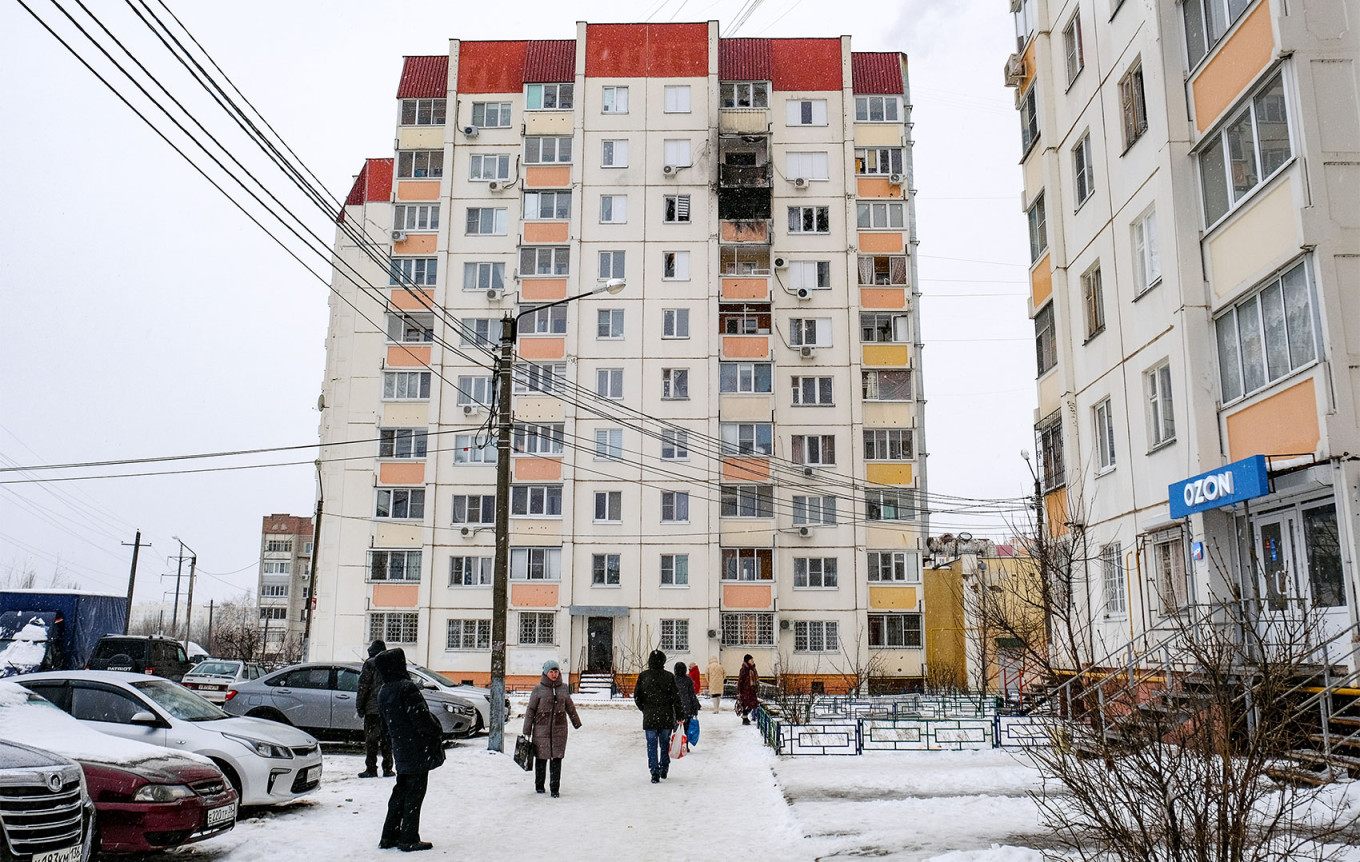
Signs of war
In Voronezh, there are few reminders of the war that is grinding on a couple hundred kilometers away. While the neighboring Belgorod region is shelled almost daily, life seems almost ordinary here.
However, from time to time, it’s possible to sense that something is wrong — as if there is a glitch in the matrix.
Sometimes a lone column of battered military trucks appears out of nowhere and drives off seemingly toward oblivion. Or the hum of airplanes rumbles over the city, and the rest of the world seems to freeze.
Other signs of the war are neatly woven into everyday life.
In the city’s main bookstore, a new novel by pro-war writer Zakhar Prilepin bearing the pro-war symbol “Z” on its cover sits in the bestsellers section next to Stephen King novels.
Ptichka, a coffee shop on a hipster street, is full of its usual clientele of regulars and freelancers. However, baristas say that in recent months, wounded soldiers from a nearby hospital often come here in the mornings.
While authorities work to keep civilians insulated from the effects of the war, war-related incidents appear to be increasingly disturbing the peace in the region.
In early January, a Russian warplane made an "emergency release" of its explosive payload over a village in the Voronezh region. Four people were injured and more than 100 buildings were damaged.
The proximity of the fighting reminded many Voronezh residents of June 2023, when a column of Wagner mercenaries entered the region during Yevgeny Prigozhin’s attempted military mutiny.
During the Wagner mutiny, two helicopters and a reconnaissance plane were shot down, killing all crew members on board. One of the shells fell into the courtyard of a high-rise building, and an oil depot was blown up on the outskirts of the city.
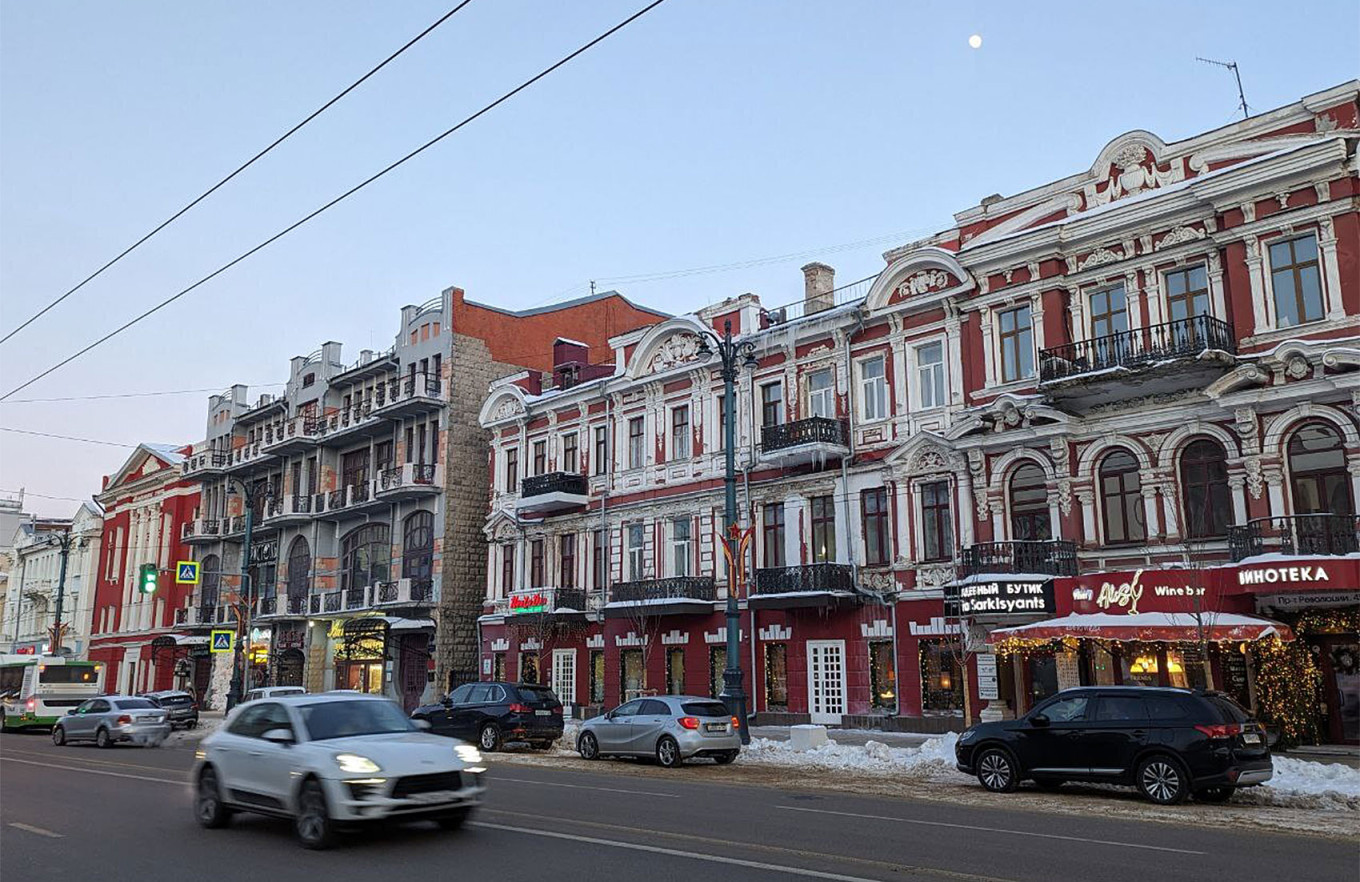
“On the night when they [the mercenaries] moved into Voronezh, it was an ordinary Friday in the city. Everyone was hanging out,” recalls 25-year-old graduate student Grigory. “I was sitting with friends in a bar and constantly monitoring the news. And no one else seemed to care about what was happening.”
“When I was driving home early in the morning, my friend texted me: ‘Be careful, there was shooting on the way’.”
All mass events in the region were canceled and a counterterrorism regime was introduced. Columns of mercenaries crossed the region and headed north towards Moscow before the rebellion was called off hours later.
“It ended as quickly as it started. The next day, life went back to normal,” recalls Grigory. “However, the column of smoke from the oil depot was there for a couple more days.”
Election anxiety
Voronezh is hung with advertisements for contract military service, which no one seems to notice anymore. Several pop-up military enlistment offices operate in the city center.
In December, Governor Alexander Gusev said the Voronezh region had become one of the country's leaders in the number of volunteers who went to the front.
Two sources in the city districts’ administrations told The Moscow Times that the authorities “persistently ask” them to recruit at least someone, even homeless people, to meet the contract recruitment quota.
These benchmarks are apparently designed to reduce the public’s anxiety and assure them that there will be no second wave of mobilization, which many fear will happen after the election.
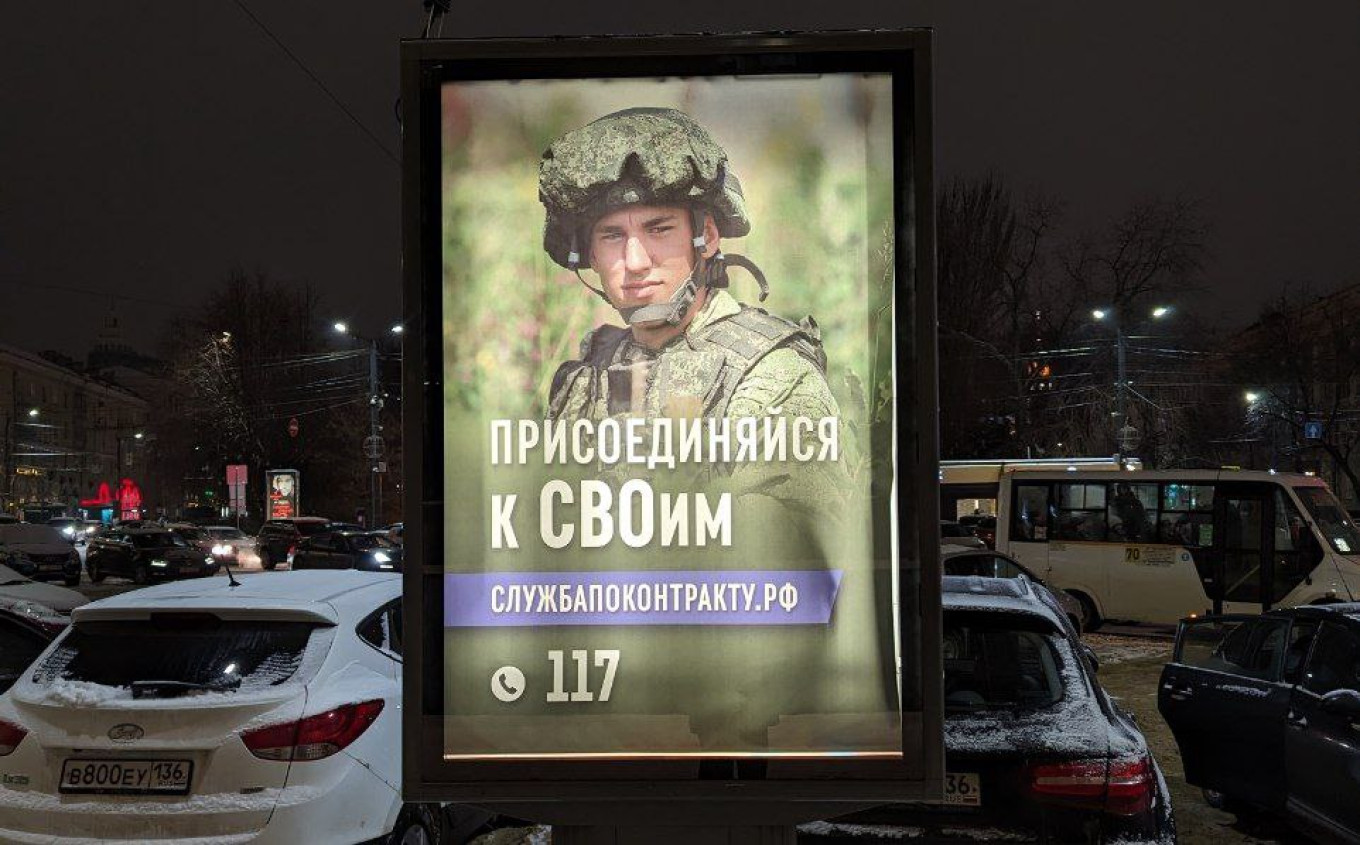
The authorities are pulling out all the stops to maintain the status quo until the presidential election in March. Although no one seems to doubt the vote’s outcome, it is still capable of causing trouble for the Kremlin as the only legal way to express civil discontent.
But despite a heavy-handed crackdown on dissent and an exodus of anti-war Russians, some activists have remained in the city.
Many of them laid flowers at the monument to the victims of political repression for several days after the death of jailed Kremlin critic Alexei Navalny last Friday.
“The day of Navalny's death brought me back to Feb. 24, 2022. Very similar feelings — the surreality of what is happening. I cried a few times," said Grigory, who came to lay flowers on the evening of Feb 16, the day Navalny's death was announced.
A makeshift memorial to Navalny also appeared at the monument to the poet Osip Mandelstam, who died in Stalin's gulag camps.
Police officers on duty nearby occasionally passed by to throw flowers in the trash.
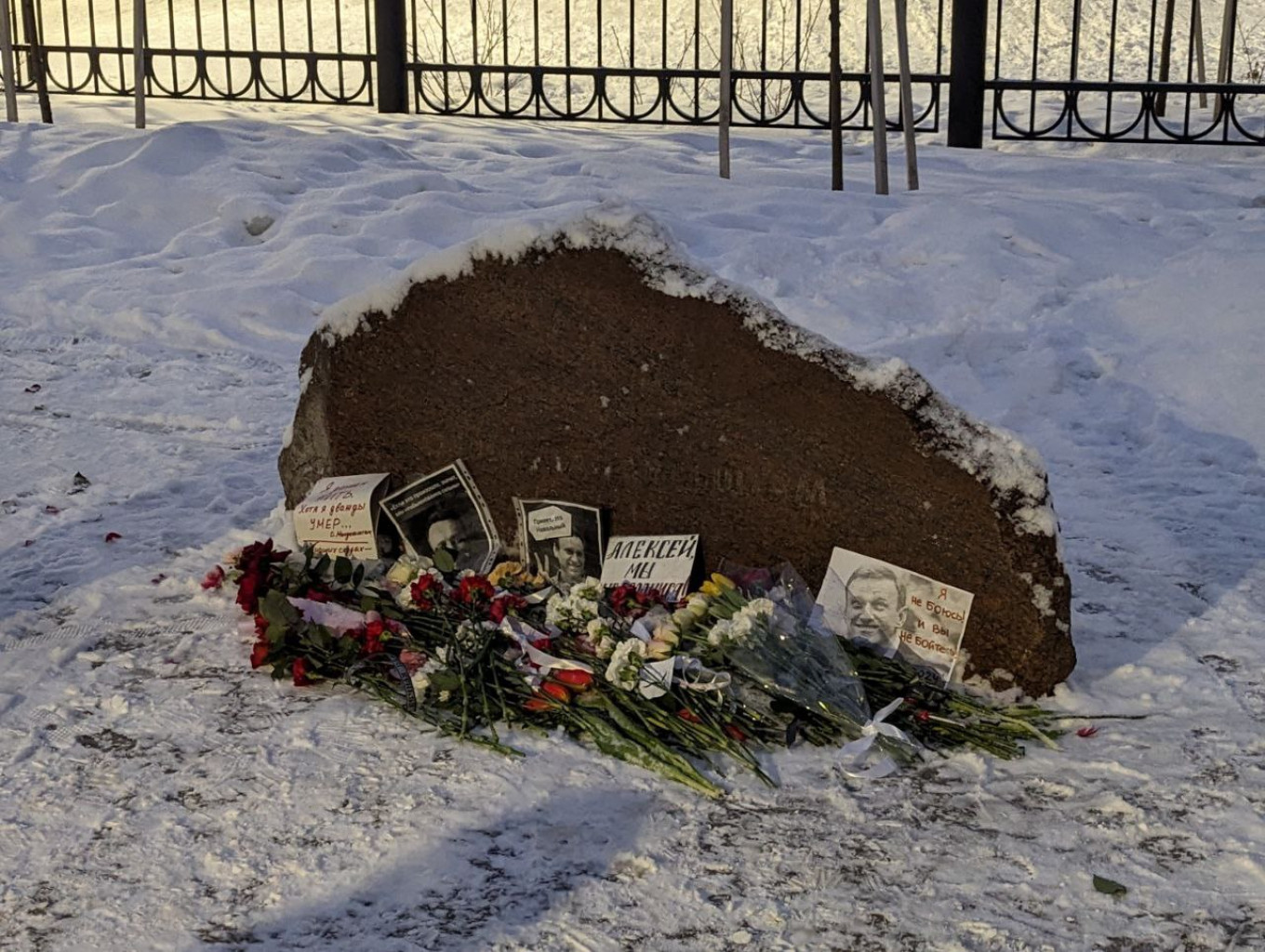
Ensuring security during the upcoming election is likely to become a headache for the authorities of the border regions as the threat of drone attacks and sabotage increases.
In early February, Georgia’s security services claimed to have intercepted explosives sent from Ukraine and destined for Voronezh, where they were allegedly to be used to carry out a terrorist attack.
On Feb. 18, another drone was shot down over the city, which, according to the pro-Kremlin media channel Mash, was targeting a local oil storage facility.
After another attack, Governor Gusev published safety recommendations in case of an air threat.
“I have full faith that we will be protected. I don't read the news or watch TV. And I can say with 99% probability that the shelling will not reach us,” said 24-year-old Karolina, who lives near the Baltimore Military Airfield where several drones have been shot down.
"Anyway, I'm not going to leave. We have invested too much money in the house."
A Message from The Moscow Times:
Dear readers,
We are facing unprecedented challenges. Russia's Prosecutor General's Office has designated The Moscow Times as an "undesirable" organization, criminalizing our work and putting our staff at risk of prosecution. This follows our earlier unjust labeling as a "foreign agent."
These actions are direct attempts to silence independent journalism in Russia. The authorities claim our work "discredits the decisions of the Russian leadership." We see things differently: we strive to provide accurate, unbiased reporting on Russia.
We, the journalists of The Moscow Times, refuse to be silenced. But to continue our work, we need your help.
Your support, no matter how small, makes a world of difference. If you can, please support us monthly starting from just $2. It's quick to set up, and every contribution makes a significant impact.
By supporting The Moscow Times, you're defending open, independent journalism in the face of repression. Thank you for standing with us.
Remind me later.


